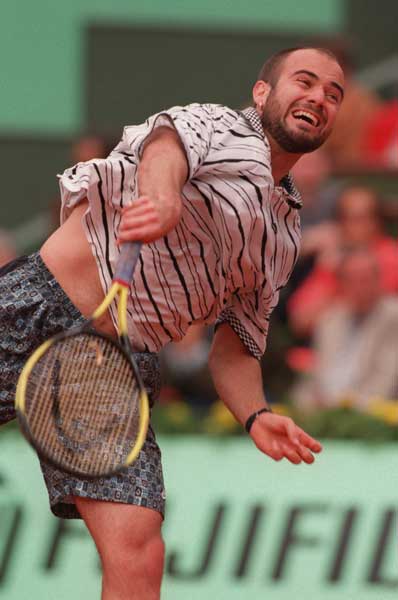Best sport books for Christmas

Duncan Hamilton was a deserving recipient of the 2007 William Hill Sports Book of the Year award for Provided You Don't Kiss Me, his account of his years as Brian Clough's de facto amanuensis. For Harold Larwood (Quercus, £20), he clearly didn't enjoy the same access to the fast bowler of Bodyline notoriety, who died in 1995, but his biography is an equally worthy winner this year. It's a great story, with Larwood's touching loyalty to the captain Douglas Jardine and his win-at-all-costs ruthlessness – and the disgraceful way Larwood was hung out to dry by the cricketing establishment. This book is his vindication.
While Larwood seemed a well-adjusted chap, Jardine would have made a suitable case for Winning At All Costs: Sporting Gods and Their Demons (JR Books, £16.99). Paul Gogarty and Ian Williamson, journalist and psychoanalyst respectively, ask what distinguishes champions from also-rans. From the practice-mania of David Beckham and Jonny Wilkinson to the possibly certifiable Dean Karnazes, who completed 50 marathons in 50 days then immediately set off on a 1,300-mile run back to where he'd started, they explore the psychological triggers that fire the world's leading sportspeople. There's lots of Oedipus in there and it sometimes seems too neat, but they argue brilliantly. For Cristiano Ronaldo, they predict a downward trajectory: the silly boy should never have severed ties with his surrogate father, Sir Alex Ferguson.
There are also a few chunks of psychoanalysis in Philippe Auclair's Cantona: the Rebel Who Would Be King, (Macmillan, £17.99). Eric Cantona worked best with a strong father-figure and, like Ronaldo, he could thank Sir Alex for his blossoming as a footballer. Auclair does well to explain the complex personality of a man whose game was fuelled by nothing short of rage.
Andre Agassi does his own analysis in Open: An Autobiography, (HarperCollins, £20) which attracted volleys of publicity thanks to his crystal-meth confessions. It's superbly written (the ghost, one JR Moehringer, turned down a cover credit), and the Las Vegan is compellingly candid – about the drugs, cheating in exams, hating tennis (all sports, though tennis most of all). And he paints a vivid portrait along the way of his mentor Brad Gilbert, the author of the celebrated Winning Ugly and surely one of the best coaches in world sport.
Also superbly written is Players: 250 Men, Women and Animals Who Created Modern Sport (Yellow Jersey Press, £20). Tim Harris examines great turning-points, from the motorcyclist Giacomo Agostini, whose boycott of the 1972 Grand Prix on the Isle of Man after his friend was killed in practice sparked the move away from races on roads, to "Montana Jack" Ziegler, doctor and weightlifter who introduced steroids to athletes.
Why England Lose by Simon Kuper and Stefan Szymanski (HarperSport, £15.99) is a sporting tale in the Freakonomics mode of inquiry, using statistics to come up with fascinating conclusions, not to mention a plausible theory about why Chelsea lost the penalty shoot-out in last year's European Cup final. Finally, honourable mentions to Lynne Truss, whose account of her stint as a sportswriter in the 1990s, Get Her Off The Pitch! (Fourth Estate, £12.99), is witty and wise; to Thor Gotaas's Running: A Global History (Reaktion, £19.95), which fulfils its brief brilliantly; and to Raphael Honigstein's Englischer Fussball: A German's View of our Beautiful Game (Yellow Jersey, £11.99), which delivers uncomfortable truths with an assassin's grin.
Subscribe to Independent Premium to bookmark this article
Want to bookmark your favourite articles and stories to read or reference later? Start your Independent Premium subscription today.

Join our commenting forum
Join thought-provoking conversations, follow other Independent readers and see their replies